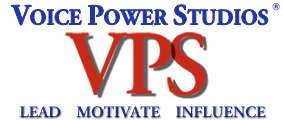2020 brought substantial changes in many directions — personal and professional. But the ever-resilient business world adapted quickly. One major change, which seems to have stuck, is working from home. And a large part of that virtual workday involves communicating with coworkers and clients via business video-conferencing platforms such as Zoom and Google Meet.
Unless you are an A-list actor, though, you likely feel a bit self-conscious about being on video. You are hardly alone. A 2016 study by Highfive and Zobgy Analytics found that 59 percent of people feel more self-aware when on-camera than they do in their off-camera life at the office.
These days everyone is selling, negotiating, facilitating, mediating, and giving presentations on live video. Few things are more annoying than not being able to see or hear someone in a video conference. But those small images and having everyone on mute with their cameras turned off make it difficult to assess audience response or to create audience interaction.
Crafting a compelling message, with content that’s powerful and persuasive, is a good first-step solution. Much effort is put into outstanding PowerPoint presentations that use language and stories for a stronger impact.
Most executives, however, don't realize that they need a compelling speaking voice to deliver their message. Compelling content spoken by a boring, non-energetic, monotone voice will always fall on deaf ears. And when this flat, uninspiring person is coming at you via your laptop screen, Zoom fatigue can’t help but attack even the most devoted of participants. As pointed out by frequent videoconferencer and Fast Company contributor Doug Aamoth (in Fast Company), “I think the biggest difference is the speaking cadence, due to lag time or poor connectivity. Phrases like ‘Could you repeat that?’ and ‘Sorry, go ahead with what you are saying’ are quite common.” But a compelling message and a compelling voice can change your life and your career.
Your voice, especially in this new context, is your primary tool for delivering a compelling message. Great content and a great voice resonate, and together create a lasting impact. Think of hearing Amanda Gorman read her poem, “The Hill We Climb” at the 2021 presidential inauguration. Or take a look at Brené Brown, whose TED Talk on vulnerability is one of their most-viewed presentations ever. These are compelling speakers who rely as much on how they communicate as what they communicate.
Now. Think back to one of your recent Zoom meetings, or Google Meets, or to whatever video conference you recently took part in. Take a moment to evaluate that video call—objectively. In your mind, as you go back to that meeting, imagine you are watching not yourself but someone else's performance. As you reflect, or rewatch a video of yourself, think about these following questions.
- Are you mumbling or speaking clearly?
- Are you throwing away the ends of your thoughts?
- Do you sound monotone and boring?
- Is your vocal tone flat and uninteresting?
- Are you speaking with energy and enthusiasm?
- Is your voice loud enough?
- Are you speaking too fast or too slow?
- If you are soft-spoken, do you need to raise your volume?
- Are you varying your pace and inflection so you sound as interested in the subject matter as you actually are?
- Are you projecting your voice with a positive impact.
After you’ve mulled over these questions as objectively as you can, what was your impression of yourself? How did you sound? How did you come off? (Nancy Ancowitz, a business communications coach and author of Self-Promotion for Introverts: The Quiet Guide to Getting Ahead, has some ideas on online speaking.) Did you rush through what you said? (If so, take a tip from Daniel Kingsley, founder of Presence Training: Slow down. Take 10-20% off your speed of delivery.) And after you’ve answered them, or thought about them—try out the new Pocket Voice Coach app. It’s easy to use, and one of the best and quickest ways to test your speaking rate and pronunciation—and to prepare yourself for that next video conference.
Excellent vocal skills are the foundation for outstanding communication and for speaking powerfully and persuasively. An important first step is to sign up for a 30-minute, no obligation voice analysis. Visit our YouTube Channel or check us out at https://www.linkedin.com/in/sandramcknightvps
